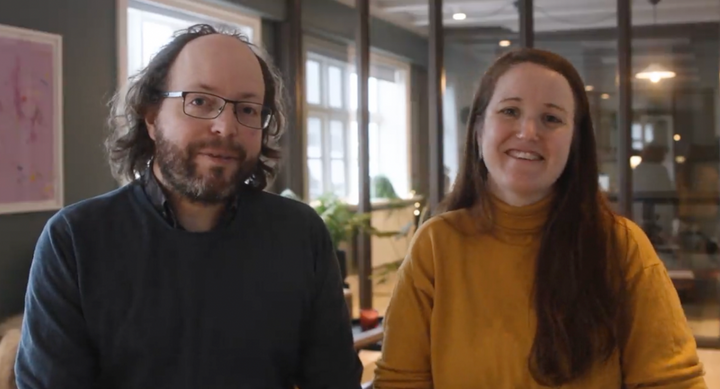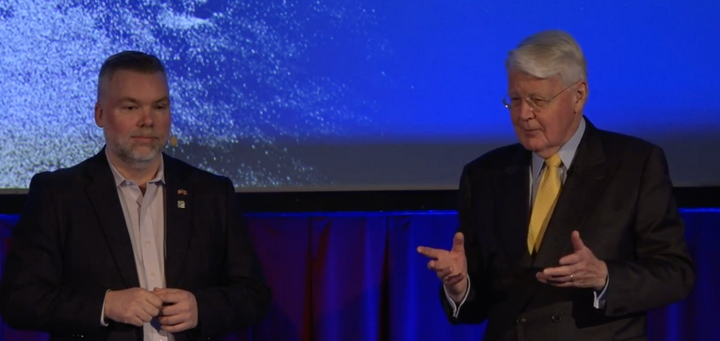Framkvæmd trompar hugmynd – en hversu mikið?
Síðastliðna mánuði hef ég skoðað mikið af efni um sprotafyrirtæki, viðskiptahugmyndir og nýsköpun. Mikið af bókum, hlaðvörpum, myndböndum, og fleira um ýmis umræðuefni allt frá praktískum ráðum um hvernig eigi að framkvæma tiltekin verkefni (t.d. lagaleg atriði, markaðssetning, fjármögnun) yfir í abstrakt pælingar eða heimspekilega framtíðarsýn á tækni og nýsköpun.

Flestir frumkvöðlar hafa eflaust heyrt því fleygt fram að hugmyndir séu ódýrar og að hver sem er geti fengið viðskiptahugmynd. Þetta er gjarnan notað til að ýta undir mikilvægi þess að hugmynd sé einungis hugmynd, og það sé allt annar handleggur að framkvæma hana. En eru frábærar viðskiptahugmyndir auðfengnar? Hvað þarf til? Eru þeir frumkvöðlar sem standa að baki frábærum viðskiptahugmyndum heppnir að hafa fundið þær, eða liggur gríðarleg vinna þar að baki? Vinna um að skilja hvernig tæknin þróast á ýmsum sviðum, og samhliða mynda sér skilgreinda skoðun á framtíð hennar?
Það sem mér fannst áhugavert er hversu samræmd skilaboð þekktustu leiðtogar í tækniiðnaðinum hafa fyrir frumkvöðla. Má þar nefna Ben Horowitz, Peter Thiel, Elon Musk, Sam Altman, og fleiri (sjá tilvitnanir hér fyrir neðan). Á meðan þeir koma boðskap sínum á framfæri hver á sinn hátt, má færa rök fyrir því að boðskapurinn snúist að miklu leyti um sama hlutinn; Að hugsa sjálfstætt. Enn fremur, hvernig frábærar viðskiptahugmyndir eiga það til að fæðast hjá frumkvöðlum sem sannarlega hugsa sjálfstætt.
Ég er hjartanlega sammála því að framkvæmd viðskiptahugmyndar vegur þyngra en hugmyndin sjálf, en erum við að vanmeta vinnuna sem liggur að baki frábærum viðskiptahugmyndum?
Látið mig vita hvað ykkur finnst.
Vignir.
“Don’t listen to your friends. The more generalized case of that is: Think for yourself. It sounds both simple and trivial, but in reality it’s extremely difficult and profound. And here’s why. As human beings we want to be liked. It’s anthropological. If people didn’t like you in caveman days, they would just eat you. So you really have a natural built instinct to want to be liked, and the easiest way to do that is to tell people what they want to hear. You know what everybody wants to hear? What they already believe to be true. The last thing they want to hear is an original idea that contradicts their belief system. But those are the only things, things that you belief that everybody around you doesn’t believe, when you’re right, that create real value in the world. Everything else people already know and there is no value in creating it. So it’s so important to think for yourself.”
Ben Horowitz, 2015 Columbia University Commencement Address.
“It’s important to reason from first principles, rather than by analogy. The normal way that we conduct our lives is that we reason by analogy. We are doing this because it’s like something else that was done, or like what other people are doing. For example, slight iterations on a theme. It’s mentally easier to reason by analogy rather then first principles. First principles are kind of the physics way of looking at the world. What that means is, you boil things down to the most fundamental truths and say: ‘Ok, what are we sure is true, or as sure as possible is true’ and then reason up from there. That takes a lot more mental energy.”
Elon Musk on work ethics, principles, attitude, failure.
“We are always focused on very short time horizons. You have to figure out how you are going to go through the next month, next quarter, get some customers, etc. But it is always worth thinking ahead 5–10 years. Why will this be a valuable business in 5–10 years? How’s the competitive landscape going to develop, how’s technology going to develop, how’s the world going to develop. These are hard questions. But the great entrepreneurs I know always have a perspective on it, and might be wrong. So, you have a plan. A bad plan is always better than no plan. Have a plan. You can always change it. Don’t pretend that you have no clue about what is going to happen and everything in the future is random. If you say everything is random, that’s how you set yourself up for failure.”
Peter Thiel on thinking ahead 5–10 years.
“I myself used to believe ideas didn’t matter that much, but I’m very sure that’s wrong now… Long-term thinking is so rare anywhere, but especially in startups. There is a huge advantage if you do it. Remember that the idea will expand and become more ambitious as you go. You certainly don’t need to have everything figured out in your path to world domination, but you really want a nice kernel to start with. You want something that can develop in interesting ways.”
Sam Altman at the first class of “How to start a startup” at Stanford.
“Right now the new is you, but someday not too long from now, you will gradually become the old and be cleared away. Sorry to be so dramatic, but it is quite true. Your time is limited, so don’t waste it living someone else’s life. Don’t be trapped by dogma which is living with the results of other people’s thinking. Don’t let the noise of others’ opinions drown out your own inner voice. And most important, have the courage to follow your heart and intuition. They somehow already know what you truly want to become. Everything else is secondary.”
Steve Jobs at 2005 Stanford Commencement Address.
The really, really breakthrough ideas often seem nuts the first time you see them. And it’s the fact that they seem nuts that can be a very positive signal because 1) that can explain why it already isn’t being done by an existing big company, because it’s just considered too strange. And 2) if it works, if the bit flips at some point and it goes from nuts to a good idea, those are the companies that can just explode and become gigantically huge. The PC seemed nuts, the internet seemed nuts, AirBnB seemed nuts, Uber seemed nuts, Bitcoin today seems nuts..”
Marc Andreessen on big breakthrough ideas and courageous entrepreneurs.




